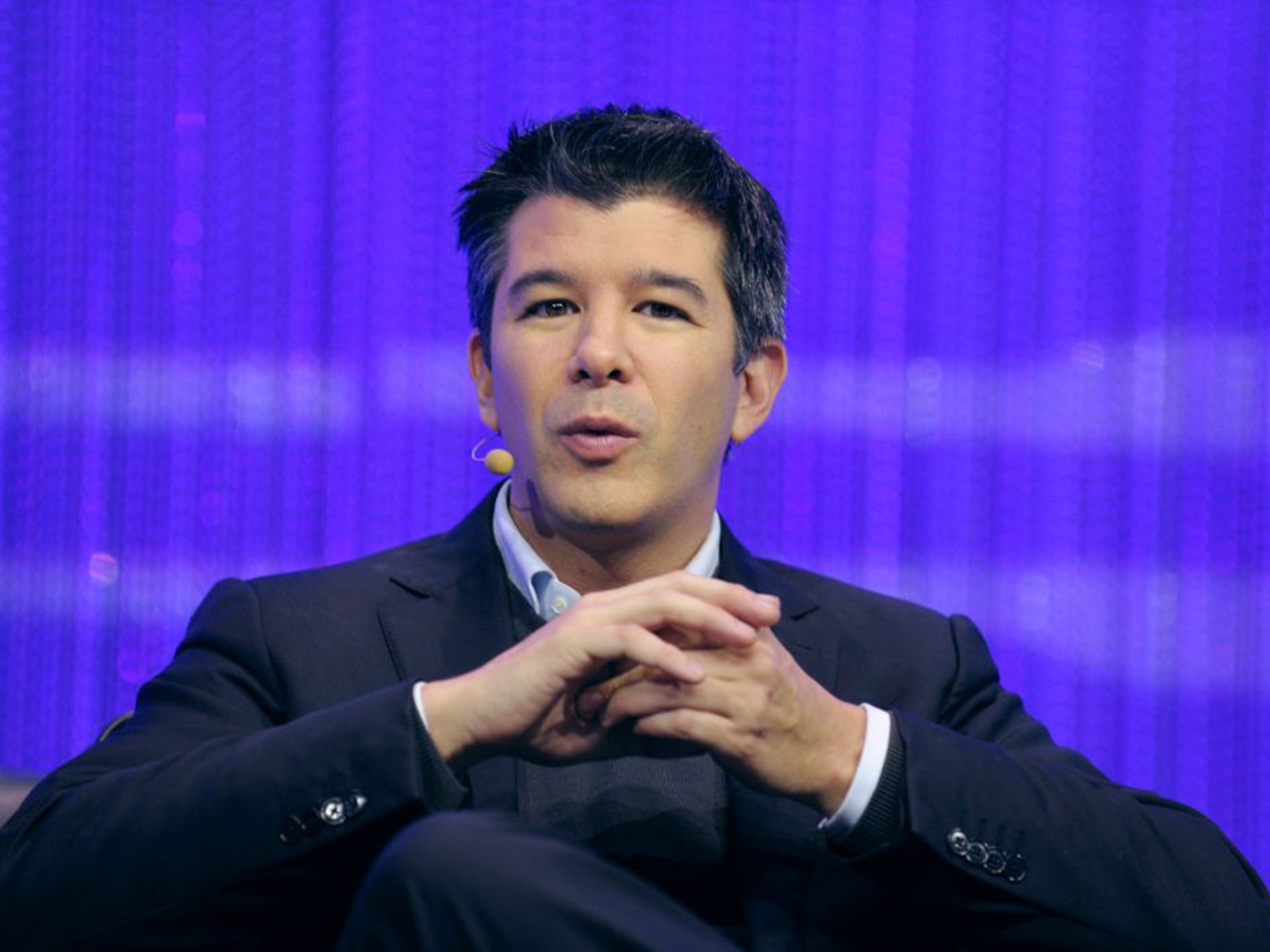Uber to expand from 20 to 100 cities in China after raising $1.2 billion in funding
The expansion, announced by CEO Travis Kalanick at an event in China, would set up a fierce rivalry with local taxi app Didi Kuaidi

Your support helps us to tell the story
From reproductive rights to climate change to Big Tech, The Independent is on the ground when the story is developing. Whether it's investigating the financials of Elon Musk's pro-Trump PAC or producing our latest documentary, 'The A Word', which shines a light on the American women fighting for reproductive rights, we know how important it is to parse out the facts from the messaging.
At such a critical moment in US history, we need reporters on the ground. Your donation allows us to keep sending journalists to speak to both sides of the story.
The Independent is trusted by Americans across the entire political spectrum. And unlike many other quality news outlets, we choose not to lock Americans out of our reporting and analysis with paywalls. We believe quality journalism should be available to everyone, paid for by those who can afford it.
Your support makes all the difference.The CEO of Uber has said he plans to take the taxi-hailing service to 100 Chinese cities following a round of funding that topped a billion dollars.
The expansion, announced by CEO Travis Kalanick at an event in China, would set up a fierce rivalry with local taxi app Didi Kuaidi.
Uber currently operates in 20 of the country's cities.
The plan comes after its Chinese business raised another $1.2 billion (£781.9 million).
Like Didi Kuaidi, it is thought the firm will use the cash to help subsidise fares to win market share.
Didi Kuaidi has reportedly also been fundraising, taking in an extra $3 billion.
Uber also has the backing of investor Baidu, China's dominant internet search firm, which Kalanick believes can help it get access to officials to smooth regulatory paths.
Kalanick said that Uber had already made great strides in China, taking market share from 1% to 30-35% in just nine months.
At the Beijing event he appealed to Chinese authorites by using the language similar to that of the Communist Party.
"Progress is something we see the government be incredibly open to, whether it be about more jobs and less pollution, less congestion on the streets, better utilization of infrastructure, that kind of progress always has to be in harmony with stability and that is one of the big things that we partnered with the government on," said Kalanick.
Additional reporting by Reuters
Join our commenting forum
Join thought-provoking conversations, follow other Independent readers and see their replies
Comments